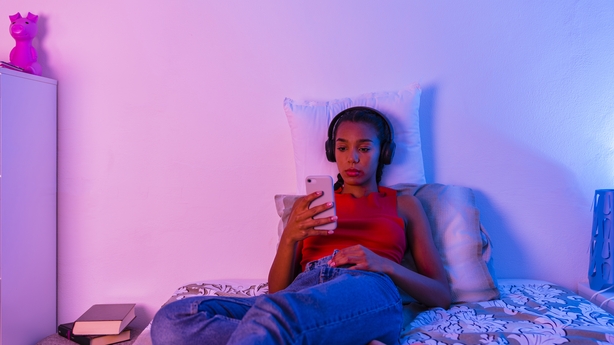The new Social, Personal and Health Education (SPHE) Junior Cert curriculum has been unveiled, aiming to educate students on the risks of sharing sexual images online, consent and information on gender identity.
However, it's the inclusion of the influence of pornography that has grabbed the most headlines.
Psychotherapist Colman Noctor joined The Ray D'Arcy Show to share his insights on the new curriculum.
"There's lots of good things in it", he says. "I found the word 'pornography' in it once, so I think there may be a little bit made out of this."

Still, as Ray notes, it one more time than it has appeared previously. "We have to prepare children for the world they live in now", Noctor says. "We need to work on preparing children to navigate a space rather than trying to protect them from it."
As a psychotherapist, Noctor says that pornography would be the reason somebody is referred to you "a handful of times". "But when you are in discussion with young people it comes up, maybe as a source of anxiety, a source of pressure.
"Our children have never been more information-overloaded", he says. "So they can become their own researchers. They go into researching this with little to no critical thinking skills. They take for gospel what they see.

"If a child is learning about sexuality, intimacy, relationships through the medium of pornography they have a very thwarted and warped view of what relationships are. The purpose of pornography is that it is fantasy, it is not representative of reality.
"We need to teach children that there is a separation there."
Some would argue that including pornography in the curriculum would give students ideas and lead to them seeking it out, but Noctor doesn't believe this. "You have to weigh up the costs of including this in the curriculum. It's not like we're promoting it."
"People are not going to get ideas about pornography from a school conversation. They're going to get [them] from pornography and the industry. I don't believe it's a case of if you're child comes across pornography, I think it's when they do."
When it comes to sharing information, however, what is "too much" and when do you bring it in? Noctor says, "you want to equip children with information that is reliable and that they can make good choices from".

He adds that there will be students who "roll their eyes" at the topic and dismiss it, but "there's a difference between knowing what one or two terms mean and actually knowing the meaning of the term". He says that children who have older siblings or who have used phones for a number of years might think they're au fait with these topics, but areas like intimacy and consent can be "missed".
He adds that with more children getting their sex education from social media platforms like TikTok, "we have to teach our children to be media literate in that we can question the reliability of a source".
Noctor adds that thinking about the kinds of classes these topics are taught to is important, saying that mixed classes "offer an opportunity rather than a threat" when it comes to discussing them. Taking the emotional and psychological development as girls as an example, he says "you try and deliver that in a group of boys and it's all boys, you're going to have a challenge there", and vice versa.
"The mixed environment reflects the environment which they inhabit", he adds.
To listen to the full interview with Coleman Noctor, click here.

